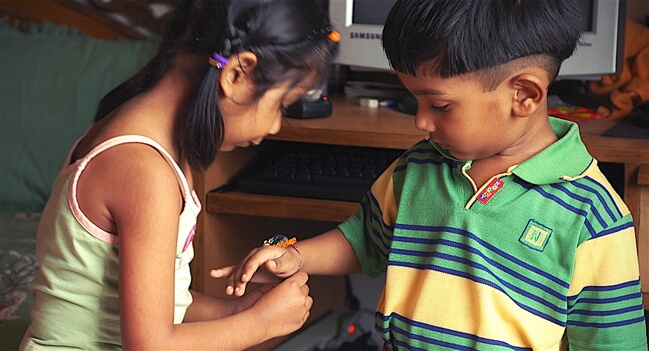Keeping sibling peace at home

How do you respond when kids fight and argue? Do you make a plea for peace, order the combatants to their bedrooms or find out who caused the war?
It’s almost impossible to stay out of kids’ fights as they’re usually noisy, and invariably at least one child will come to you to intervene. Sibling fighting is so common these days that it seems to be the first commandment of childhood: Thou shalt fight and argue with your brother and sister until your parents can’t stand it any longer.
It helps to have a realistic attitude to children’s disputes. Kids are learners when it comes to resolving conflict so physical means, name-calling and bickering are commonly their preferred tools. Conflict itself is not harmful, but the way disagreements are resolved is the big issue for parents.
There are two broad approaches you can take when kids fight – get involved or stay out of it. You need to be lead by their age and maturity, and ability to sort things out themselves, as well as the nature of the problem itself. Some issues such seating rights on the family dining table are not worth fighting over so wise parents will stay right out of this issue. If you decide to remain neutral then bear it, beat it or boot them out when they fight is your best policy. That means put up with the fight if you can, go into another room or send kids outside if they are fighting. This approach works when sibling fighting is for the purpose of involving parents, which it often is. It gets you out of the picture. Parents are as predictable as washing machine cycles, always responding to kids’ cries for help so kids soon work out they have a great way to keep mum or dad busy with them. If this is the case, then break the pattern by refusing to become involved. “You guys can work this out for yourself” is the idea.
There are times when you just can’t ignore a fight and your assistance is needed to resolve the dispute. If this is the case, let them know you’ll help them work out a solution to their problem but avoid taking sides, which they invariably want. Us e kids’ conflict as a teachable moment where you can coach them to resolve their relationship issues in more socially acceptable ways, than hitting, yelling and sulking. Here’s some ideas when they fight:
1. Focus on emotions first. Get kids to calm down before you talk with them. This may mean they sit on their own or go outside and let off steam physically.
2. Focus on the problem, not the fight. Ignore the ‘she hit me first’ type arguments kids often put forward. Drill down onto the issue at hand.
3. Get them to see two sides the story. The hardest part in any dispute, whether in a family or an international conflict, is to get those involved to see the other side of the story. Listen to your kids and try to get them to see the situation from the other’s viewpoint.
4. Restore the relationship. Focus on relationships rather than on problems. With young children, in particular, the issue they were fighting about is generally long-forgotten by the time a parent intervenes. An apology, a hug or a joint treat are some ways to help restore relationships with kids.
The measure of a strong family is not so much whether siblings fight, but will they pull together when needed. This is the case in most families. Kids love each other hard, and unfortunately for a parent’s peace of mind, they’ll fight just as hard too. Effective parents know that kids generally need to be given opportunities to resolve their own relationships issues themselves. But they also recognise that some sibling disputes offer valuable opportunities to teach kids the skills to resolve conflict without resorting to power or other less savoury means.




